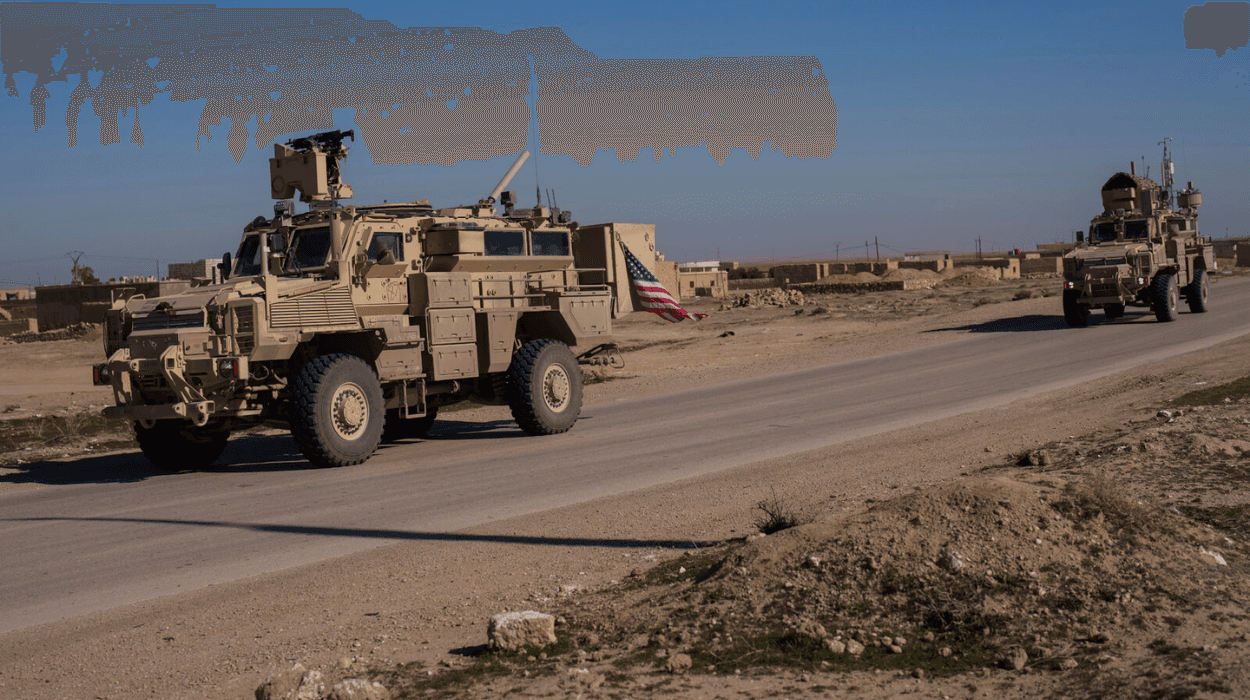Syria is undergoing critical reconstruction of its security, military, and police forces amid the planned withdrawal of U.S. forces, as outlined by multiple reports from September and October 2025. This process is shaped by the new interim government’s efforts to stabilise the country, regional power dynamics, and the evolving geopolitical landscape.
The U.S. Withdrawal and Syria’s Transition
As reported by Istituto per gli Studi di Politica
Internazionale (ISPI) on October 2025, the United States has initiated a
withdrawal from Syria, where it had maintained forces primarily to combat ISIS
and support the Syrian Democratic Forces (SDF). The pullback signals a major
geopolitical shift, with the interim Syrian government, led by President Ahmed
Al-Sharaa, seeking to reassert control over fragmented security forces and
military institutions previously weakened or sidelined during the decade-long
civil war and U.S. involvement.
President Al-Sharaa, who addressed the United Nations General Assembly in September 2025, highlighted ongoing reforms aimed at rebuilding state institutions, promoting transitional justice, and restoring national renewal.
“Syria is rebuilding itself through establishing a new State, building institutions and laws that guarantee the rights of all without exception,”
he
stated, emphasising a forward-looking agenda toward security and political
stability.
Rebuilding Security and Military Forces
ISPI’s analysis details that the Syrian government is
undertaking comprehensive efforts to rebuild and modernise its security
apparatus, which includes the national army, police forces, and militias that
had either aligned with the regime or operated independently. This process
involves reintegrating diverse armed groups, upgrading training and equipment,
and strengthening law enforcement to achieve internal order and territorial
control. The success of these reforms is seen as critical to consolidating
regime authority over liberated and government-held areas.
Security improvements have translated into tangible benefits
on the ground. According to reporting by Northeast Bylines in late September
2025, national and local security reportedly improved significantly since the
regime change in 2024, with a reduction in violence and armed clashes. This
environment allowed reopening of vital trade routes and the reinforcement of
community-based conflict resolution mechanisms.
Political Reform and Social Trust
The security rebuilding intersects with broader political
transitions. Al-Sharaa’s interim government has suspended the old constitution
and is working on drafting a new one intended to represent all Syrians. There
have been moves to allow political party formation and expanded freedom of the
press compared to previous years. The government emphasises transitional
justice initiatives to investigate past abuses and sectarian violence, aiming
to restore public trust in state institutions, including the police and
security services.
Al-Sharaa pledged accountability before the UN, saying,
“I guarantee to bring to justice everyone accountable and responsible for bloodshed.”
However, the process is delicate and unfolding amidst continuing
fractures in Syrian society and the legacy of conflict.
Regional Influence and Geopolitical Complexity
Rebuilding Syria’s security forces happens amid intense
regional rivalry. Russia and Iran, despite setbacks and reduced direct
involvement after the regime change, remain influential actors supporting
different militias and military operations. Russia maintains military bases
crucial for its regional strategy, while Iran’s aligned militias complicate
internal security dynamics.
A report by the Arab Center Washington DC highlights that
the new Syrian authority is under significant external influence. The interim
government depends on financial support from Gulf states such as Saudi Arabia
and the UAE, while security arrangements increasingly involve Israeli and
American interests. For example, Saudi Arabia acts as a mediator in
reconciliation efforts, and Israeli concerns about Iranian presence in southern
Syria continue to shape military clashes and diplomatic tensions.
Economic Recovery Linked to Security
Reports indicate an improving economy parallel to security
enhancements. According to Northeast Bylines, Syria has seen increased
investment and economic activity, with new companies entering the market and
deals worth billions signed with regional and international partners. This
economic rebound offers a supportive context for stabilising the security
environment and rebuilding state capacity.
The rebuilding of Syria’s security, military, and police
forces is a multifaceted endeavour marked by internal challenges and external
geopolitical manoeuvring. The interim government under President Ahmed
Al-Sharaa is working toward institutional reconstruction and political
legitimacy, supported but also constrained by powerful regional actors.
Meanwhile, the U.S. withdrawal creates both opportunities and uncertainties in
Syria’s security landscape.
Efforts to restore effective state control and public trust continue amid a fragile peace and ongoing regional competition. The coming period will be decisive in shaping Syria’s sovereignty, stability, and future governance.
